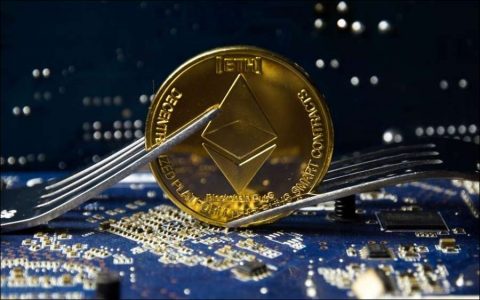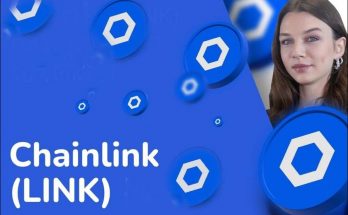Three strong competitors of Ethereum. Smart contracts allow value transfer in a virtual environment with more complex commands. Smart contract platforms now allow anyone to design programmable finance and apply it to countless new use cases. Currently, DeFi and other decentralized applications (dApps) are mostly dominated by Ethereum-based smart contracts. However, Ethereum’s scalability problem causes transactions carried out on Ethereum to slow down and transaction fees to increase.
Projects that want to solve the scalability problem and take Ethereum’s throne continue to develop and gain popularity. Let’s look at three of Ethereum’s major competitors.
Polkadot (DOT)
Dr. Gavin Wood was the CTO and co-founder of Ethereum. He left Ethereum in 2016. Wood, who is also the creator of the Solidity language, founded Polkadot together with other important Blockchain developers Robert Habermeier and Peter Czaban.
The focus of the project is to solve the scalability problem that Ethereum cannot solve and to ensure interoperability. They use sharding technology to provide scalability. Thanks to Sharding technology, “Nodes” are divided into groups and data is shared between these groups, thus allowing parallel operations. Instead of all nodes performing all transactions and recording all data, dividing the nodes into small groups allows the network to scale without worrying about security.
Algorand (ALGO)
Algorand was founded by MIT professor Silvio Micali, one of the representatives of cryptography. Algorand aims to create a reliable, public and permissionless infrastructure for an economy without borders, in its words.
The Singapore-based project received a seed investment of $4 million from Pillar and Union Square Ventures in early 2018. It later raised $64 million with an extensive list of investors. Likewise, ALGO, which aims to solve Ethereum’s scalability problem, provides an infrastructure where software developers can develop smart contracts and Dapps and offers Software Development Kits (SDKs) that will make their work easier. By focusing on making developers’ experiences easier, ALGO aims to attract more developers to the platform.
Thanks to the pure proof-of-stake protocol (PPoS) developed on Byzantine consensus, it has managed to increase transaction speed without compromising security. The most important feature that ensures security in the protocol is that forking is prevented. Two blocks can never be replicated on the chain at the same time, because only one block can have the required vote threshold.
At most one block is confirmed in each round, and the approved block is written to the chain. For this reason, all transactions occurring in Algorand are final. Once a block appears, users can immediately trust the transactions contained in that block, ensuring that the block will remain part of the chain forever. This ensures that transactions are carried out quickly.
Avalanche (AVAX)
The project was developed by Ava Labs, founded under the leadership of Cornell University Professor Emin Gün Sirer, one of the pioneers of cryptology. Avalanche provides an open source platform for building decentralized applications, new financial software and interoperable blockchains. The project raised $42 million in a public token sale in June 2020.
The Avanche project, like others, focuses on solving Ethereum’s scalability problem. Avalanche consensus was developed by an anonymous group called “Team Rocket”. It increases the transaction speed up to 4500 transactions per second by directing all nodes of the protocol to consensus by creating small groups and random samples, without the need to elect a leader to reach consensus. In this way, it is possible to increase the processing speed while achieving the same security level as the classical or Nakamoto consensus. A transaction requires less than a second.
AVA will support multiple smart contract languages and formats. On the other hand, AVA Labs is making it easier for Ethereum developers to transition to AVA by creating an Ethereum fork on AVA called “Athereum”. The fork has been improved to resemble many features of Ethereum 2.0. Like other projects, AVA’s success depends on developers porting their projects to the platform.
Conclusion
In order for DeFi projects, especially those that set out to compete with banks, to spread to the base, the problems of low speed and high transaction fees need to be solved as soon as possible. While transaction fees had not yet increased this much, we, as Bitcoin and blockchain believers, would criticize banks, citing high Swift fees. However, at this point, sometimes transaction fees cost even higher than the banks. On the other hand, it is hopeful that projects to solve this problem are being developed and the interest in them is increasing day by day.
ethereum, ethereum price, polkadot, algorand, avalanche, ava, polkadot coin, algorand coin, avalanche coin, proof-of-stake protocol, blockchains, processing speed
Visits: 92




